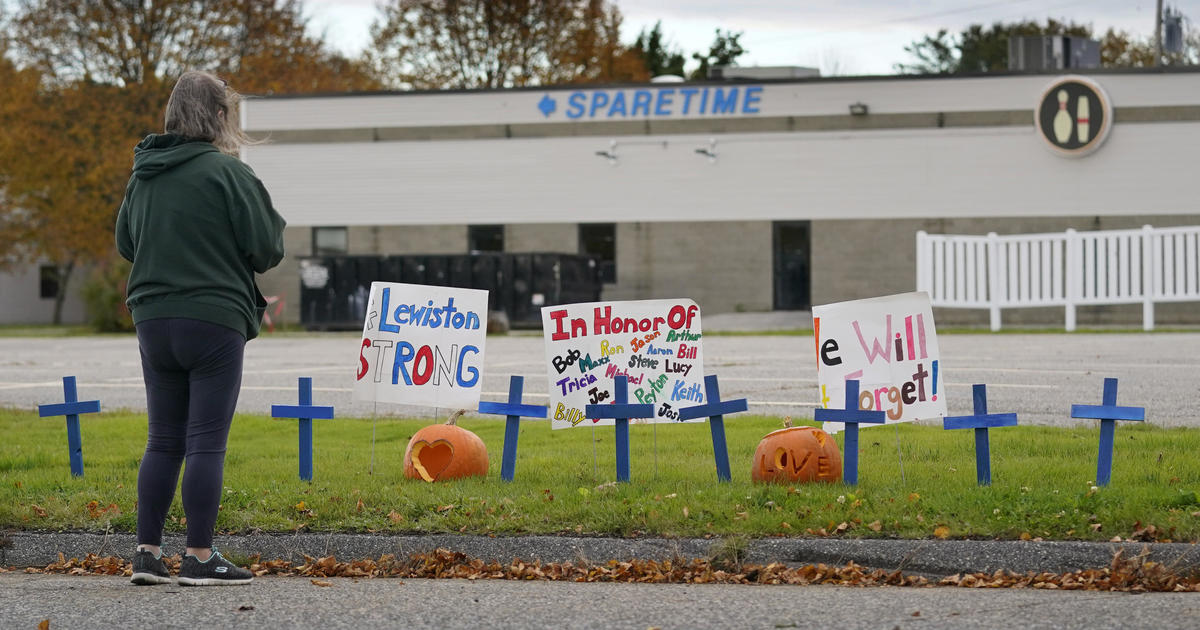The tragic mass shooting in Lewiston, Maine, on October 25, 2023, claimed the lives of 18 individuals and wounded many more, leaving an enduring scar on the community and the entire state. The event, the deadliest mass shooting in Maine’s history, shattered the sense of safety many residents held, forcing a confrontation with the stark reality that gun violence can strike anywhere. This tragedy spurred a collective response, from immediate grief and support to legislative action and ongoing community healing efforts. The enduring impact of this event underscores the profound challenges faced by communities recovering from such devastating acts of violence and the ongoing need for preventative measures. The ripple effects extend far beyond the immediate aftermath, impacting families, businesses, and the overall mental health of the community. The narrative surrounding the event is marked by a complex interplay of grief, community resilience, and the ongoing quest for justice and healing.
The Lewiston Strong Community Response
Immediate Aftermath and Support
The immediate aftermath of the shooting was characterized by an outpouring of community support. Residents rallied together, offering comfort, aid, and assistance to the victims’ families and those injured. Numerous fundraising efforts were organized, and volunteers provided essential services such as food, shelter, and counseling. The “Lewiston Strong” slogan quickly emerged as a symbol of unity and resilience, showcasing the collective determination to overcome the tragedy. The collaborative spirit witnessed during this period exemplified the power of community bonds in times of crisis. This collective strength became a beacon of hope amidst the profound grief and trauma that pervaded the city. The city’s response exemplified the innate human capacity for empathy and shared resilience, a quality pivotal in the recovery process.
Long-Term Healing and Memorialization
The healing process extends far beyond the immediate aftermath of the tragedy. The community continues to grapple with the profound emotional and psychological toll of the shooting. Mental health services have been crucial in assisting individuals and families in coping with grief, trauma, and post-traumatic stress disorder (PTSD). Initiatives focused on long-term community support and building resilience remain paramount. The planning and implementation of memorials and commemorative events serve as vital steps in acknowledging the losses and providing a space for collective remembrance and reflection. Such activities, however carefully planned, underscore the continued need for compassionate and long-lasting community initiatives. The journey of healing is ongoing, demonstrating that time is often a necessary component, and the healing will take its course.
Legal Ramifications and Legislative Changes
Lawsuits and Accountability
In the wake of the tragedy, multiple lawsuits were filed against the U.S. Army, alleging negligence in failing to address the mental health concerns of the shooter, Robert Card, before the incident. These legal actions aim to establish accountability for what survivors and families feel was a failure to prevent the tragedy. The legal process will involve a detailed examination of the shooter’s history, the Army’s response to his apparent mental breakdown, and the potential lapses that may have contributed to the tragic events. The court proceedings serve as a means of seeking justice, compensation for victims, and possibly shedding light on systemic issues within military procedures concerning the management of mental health within military personnel.
New Gun Laws in Maine
The shooting served as a catalyst for legislative changes concerning gun control in Maine. The Maine Legislature, responding swiftly to the public outcry and the undeniable need for enhanced safety regulations, introduced and passed legislation which amended the state’s existing “yellow flag” law. These measures, intended to increase gun safety and restrict access for individuals deemed dangerous, are important strides towards creating a more secure environment within the state, but the long-term effects will require continuous monitoring and adaptation as required. The strengthened laws, by augmenting existing regulations, have created a clearer framework aimed at minimizing the risk of future gun violence.
The Lasting Impact and Ongoing Recovery
Economic and Social Effects
The mass shooting’s impact reverberated across the Lewiston economy. The local businesses were adversely affected; including Just-In-Time Recreation which temporarily shut down immediately after the events of the shooting and ultimately reopened their doors 6 months later after extensive refurbishments and internal changes were implemented. Many businesses are likely experiencing diminished patronage, and the resultant economic fallout has resulted in profound financial implications which negatively affected jobs and economic opportunity. The longer-term implications for the overall health of the local economy demand continued close monitoring. Rebuilding a community’s economic structure is a process that needs ongoing assistance. The long-term social and psychological scars continue to impact local residents as recovery begins, with residents grappling with fear and uncertainty about the long-term outlook. There is evidence to show the psychological costs are immense. The long road to recovery continues as residents attempt to rediscover their former normality. This requires considerable input from the community and beyond.
The Continued Struggle for Healing
The community of Lewiston continues to grapple with the profound impact of the mass shooting, and a full recovery will be a protracted and complex process. It requires a sustained commitment from all levels of society to create safe spaces for the ongoing recovery of those personally affected by the events and to create more proactive and positive steps in reducing and possibly eventually eradicating all acts of gun violence. This journey necessitates the implementation of more robust support systems, mental health services, community programs, and legislative improvements all aimed at empowering communities and providing much needed preventative actions, alongside restorative care for those affected by gun violence.
Takeaway Points:
- The Lewiston mass shooting highlighted the devastating impact of gun violence on communities.
- The community’s response demonstrated remarkable resilience and unity.
- Legal actions and legislative changes are seeking to enhance accountability and gun safety.
- The road to healing and recovery is ongoing and requires sustained community support and commitment.
- Prevention efforts, addressing both mental health and access to firearms, are critical for creating safer communities.




